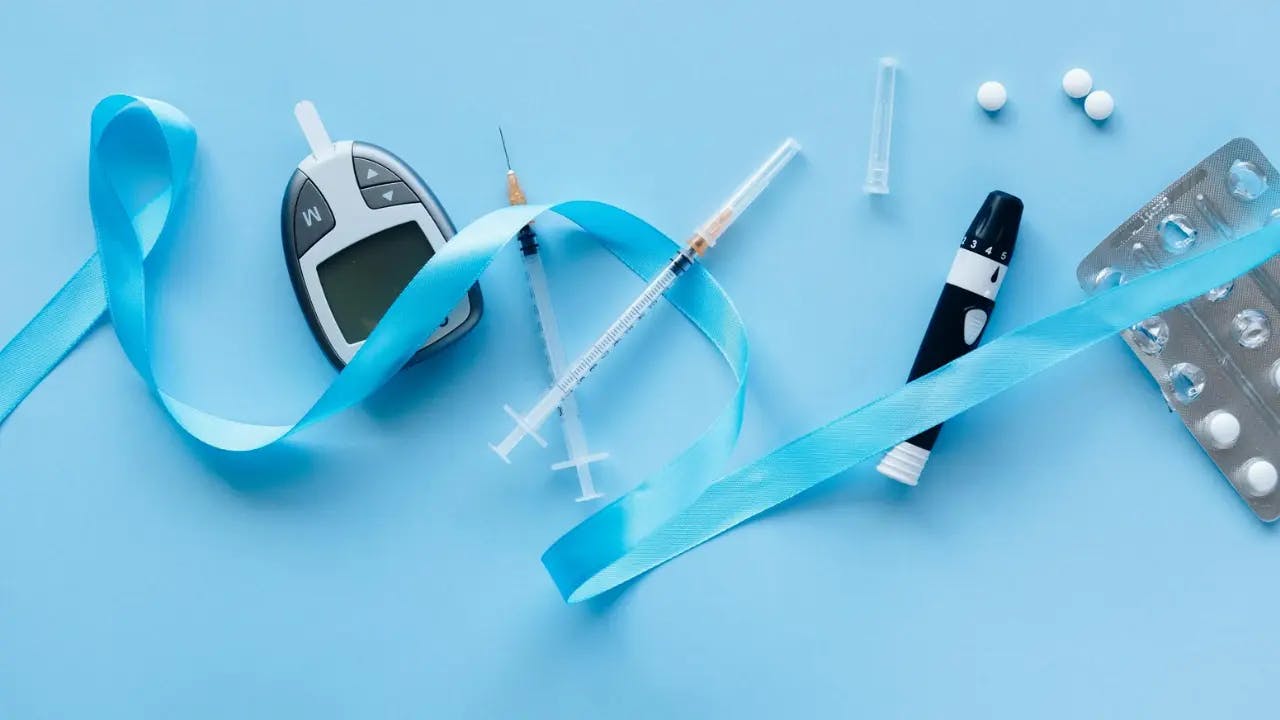What You Need To Know About Diabetes
•Health hacks

Share
According to the Australian Institute of Health and Welfare, 5.1% or just over 1.3 million Australians are currently living with diabetes.
Diabetes is a disease that occurs when your blood sugar is too high. This is caused by a lack of insulin, the hormone that helps deliver sugar to your cells.
Diabetes can cause major problems if untreated, so it's imperative that you can spot the symptoms or reduce your risk of developing the illness in the first place.
There Are Two Types Of Diabetes
Type 1 diabetes is an autoimmune condition usually diagnosed during childhood. Type 2 diabetes on the other hand is when your body stops responding to the insulin produced by your pancreas that helps take in sugar from your blood to your cells. The only way to definitively find out whether you have diabetes is to get tested, but there are also warning signs.
Early Warning Signs
Initially, you may have little to no symptoms during the onset of diabetes. That said, the symptoms of type 1 diabetes generally tend to come on more rapidly than type 2, which can take several years to develop.
If you notice any warning signs, you must visit a doctor as soon as possible, as untreated diabetes can do significant damage to your eyes, kidneys, nerves and heart.
Early warning signs of both type 1 and type 2 diabetes include:
- Extreme thirst
- Unintentional and unexplained weight loss
- Frequent urination, particularly at night
- Blurred vision
- Numbness and tingling in your hands and feet
- Increased hunger
- Fatigue
- Itchy or dry skin
- Slow healing wounds
Chronically high levels of blood sugar can also cause issues with your immune system, so you may be more likely to contract an infectious disease.
Who Is At Risk Of Diabetes?
People at risk of type 1 diabetes are generally children and young adults, or those with an immediate family member who suffers from type 1 diabetes.
People at risk of type 2 diabetes include people over 45, people who are overweight or have a sedentary lifestyle, smokers, people with high blood pressure and people with high levels of HDL cholesterol.
How Can You Prevent Diabetes?
Type 1 diabetes cannot be prevented. However, you can reduce the risk of type 2 diabetes by having a healthy lifestyle. This includes managing your weight, staying active and eating a balanced diet. That said, genetics may still play a role.
Once again, if you are starting to notice diabetes symptoms, or think you may have diabetes, please see a medical professional as soon as possible.
How Is Diabetes Treated?
If you are diagnosed with type 1 diabetes you will need to take insulin for the rest of your life as your pancreas doesn’t produce enough insulin to support your health.
If you have type 2 diabetes, you may be able to control it with changes in your lifestyle, including dieting, weight loss and exercise alongside some oral or injectable medicine.
No matter the type of diabetes you have, you will need to regularly monitor your blood sugar levels and be very careful with your diet to ensure they don't get too high. This means you will need to watch your carb intake as well as curb your intake of over-processed and low-fibre foods including sugary soft drinks, white bread, white pasta, white rice, fruit juice and fruit-flavoured yoghurts, among other things.






